Go Wild at These North Carolina Exotic Animal Farms
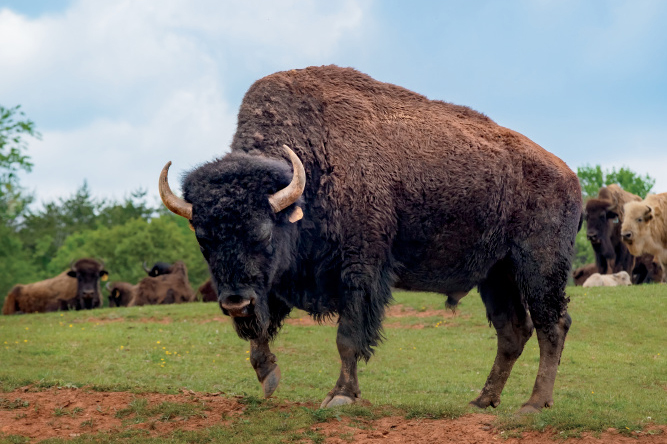
Photo by Michael D. Tedesco
There are skid marks on the roads surrounding Dr. King’s Farms. Drivers often do double takes and slam on the brakes to get a closer look at exotic animals such as bison, Watusi cattle, elk, yak and camels grazing on the pastures of the Leicester ranch.
King, a naturopathic doctor, Buncombe County Farm Bureau member and fourth-generation farmer, started raising bison on his family farm on the Ohio-Pennsylvania border in 1985. He became interested in the ancient species because of the health benefits of its meat. (Bison has fewer calories, is lower in saturated fat, cholesterol, and sodium and higher in iron than beef, according to the Bison Council.)
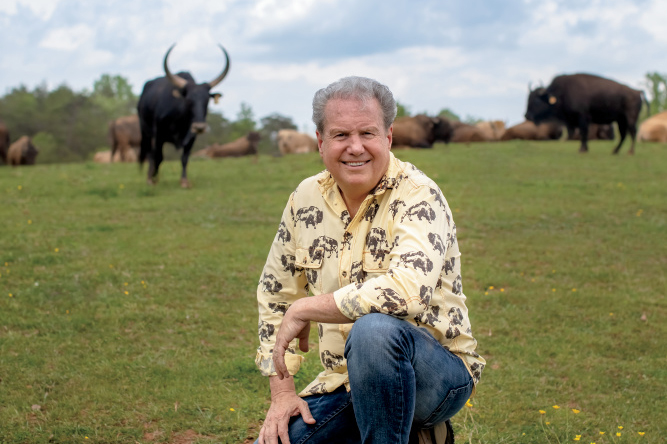
Dr. Frank King raises bison, Watusi cattle, elk, camels and other exotic animals on his farm in Leicester near Asheville, which is open to the public for tours. Photo by Michael D. Tedesco
When King moved to Asheville to start manufacturing homeopathic (natural) medicines in 1989, he also purchased a 160-acre farm to raise exotic animals for their protein. All of the animals on the farm have two important things in common: all have a direct connection to prehistoric species and produce nutritious proteins. Yak, for example, has more omega-3 fatty acids than any other meat, according to King.
It’s a desire to get up close with exotic breeds that draws visitors to Dr. King’s Farms. On farm tours, curious visitors climb aboard tractor-pulled wagons for a 90-minute tour that takes them into the pastures to feed camels; touch the thick wool on the back of a bison; and listen to the thunk of Watusi horns, which can span 12 feet, bumping together.
“When a 2,700-pound bison with a massive head comes up and looks you in the eye, it’s a shock,” King says. “People love getting up close to these animals.”
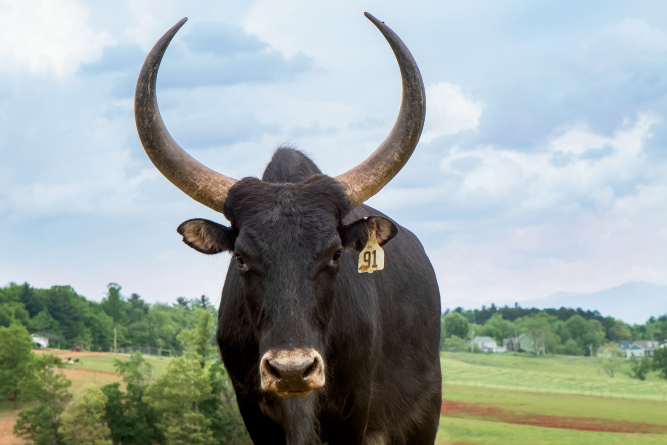
Half Bison, half Watusi; Photo by Michael D. Tedesco
Where the Wild Things Are in North Carolina
North Carolina is home to several exotic animal farms, such as Willow Pond Farmstead in Harnett County, where a commitment to raising rare breeds includes herds of Devon cattle, fainting goats, pilgrim geese and Dominique hens.
At Fading D Farm, a 64-acre ranch in Salisbury, a herd of water buffalo graze in the pastures. The gentle giants produce meat with less fat and cholesterol than other red meats and higher butterfat than cow’s milk. Fading D Farm is known for its amazing cheeses made from water buffalo milk. Owner David DiLoreto loves the unusual livestock.
“Although they’re large and [look] intimidating, water buffalo are very gentle,” he says. “When hand-raised, they are more pets than livestock, always following you around and asking to be petted.”
The exotic animals that call these ranches home are rare in North Carolina. Their populations are also dwindling worldwide, making opportunities to get up close to animals like bison extra special.
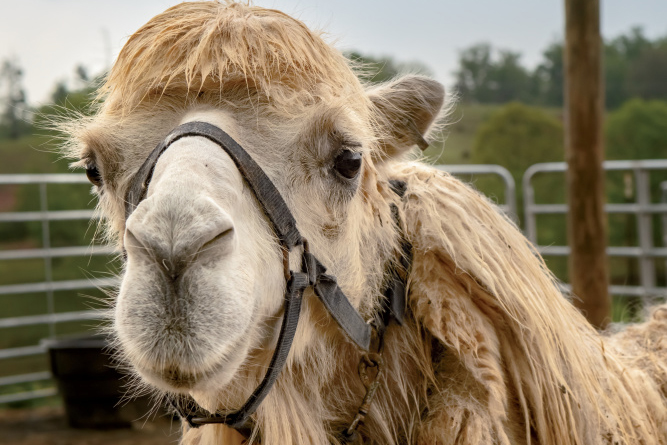
Camel; Photo by Michael D. Tedesco
Upward of 20 million bison once roamed in North America. Now, there are an estimated 500,000. King counts 300 bison on his farm. He purchased the original stock – a small herd of 27 animals – at the National Western Stock Show and Rodeo in Colorado in 1985. Now, the herd is a mix of American plains bison, Canadian woods bison and European bison, which helped improve the genetic diversity of the herd. The farm is also home to a herd of white bison, which King says is the largest number of that breed on public display.
Dr. King’s Farms is also home to 800 Watusi, which King believes is the largest herd in the western hemisphere. The animals, which are native to Africa, look like cows and have thick, wide horns that put a Texas longhorn to shame, and they produce what he calls amazing milk.
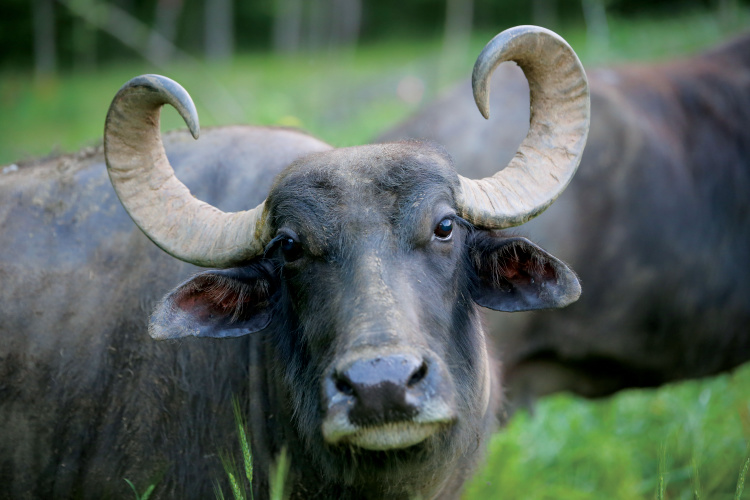
Photo courtesy of Fading D Farms
King works with zoos and private breeders to source exotic livestock. He claims the farm was the first to secure a state license to raise elk in North Carolina. He lobbied the state government and has since established a herd of 40 elk and 120 white-tailed deer.
All of the animals at Dr. King’s Farms are raised on pasture, and the meat is sold at regional and national grocers, including Earth Fare and Harris Teeter. The farm processes an estimated 5,000 animals per year, breeding them to maintain their populations – and that means newborns are a common (and popular) sight on the farm.
While King loves talking about the farm, nothing beats an actual animal encounter.
“It’s not your average farm tour,” he says.
If You Go...
Dr. King’s Farms
Leicester, NC
(828) 772-9274
drkings.com/farms/tours
Tours are offered Tuesday through Saturday at 10 a.m. Reservations are required.
Fading D Farm
Salisbury, NC
(980) 330-8189
fadingdfarm.com
Sign up for a cheese-making class or shop for fresh cheese in the farm store.
Willow Pond
Farmstead Coats, NC
willowpondfarmstead.com
No longer open to the public, Willow Pond still has rare breeds of animals and allows professional photographers to use the farm as a setting, by appointment only.
– Jodi Helmer






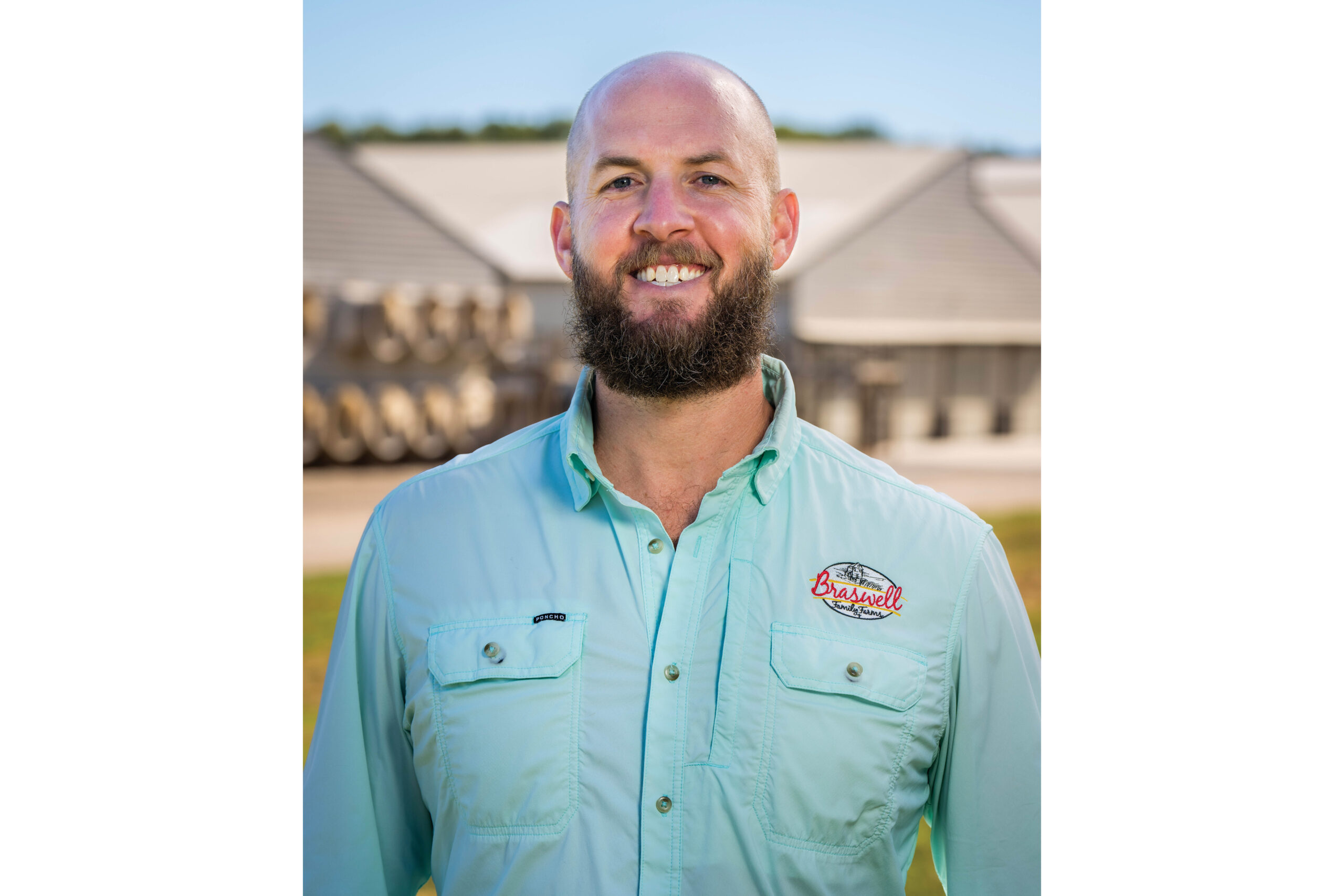
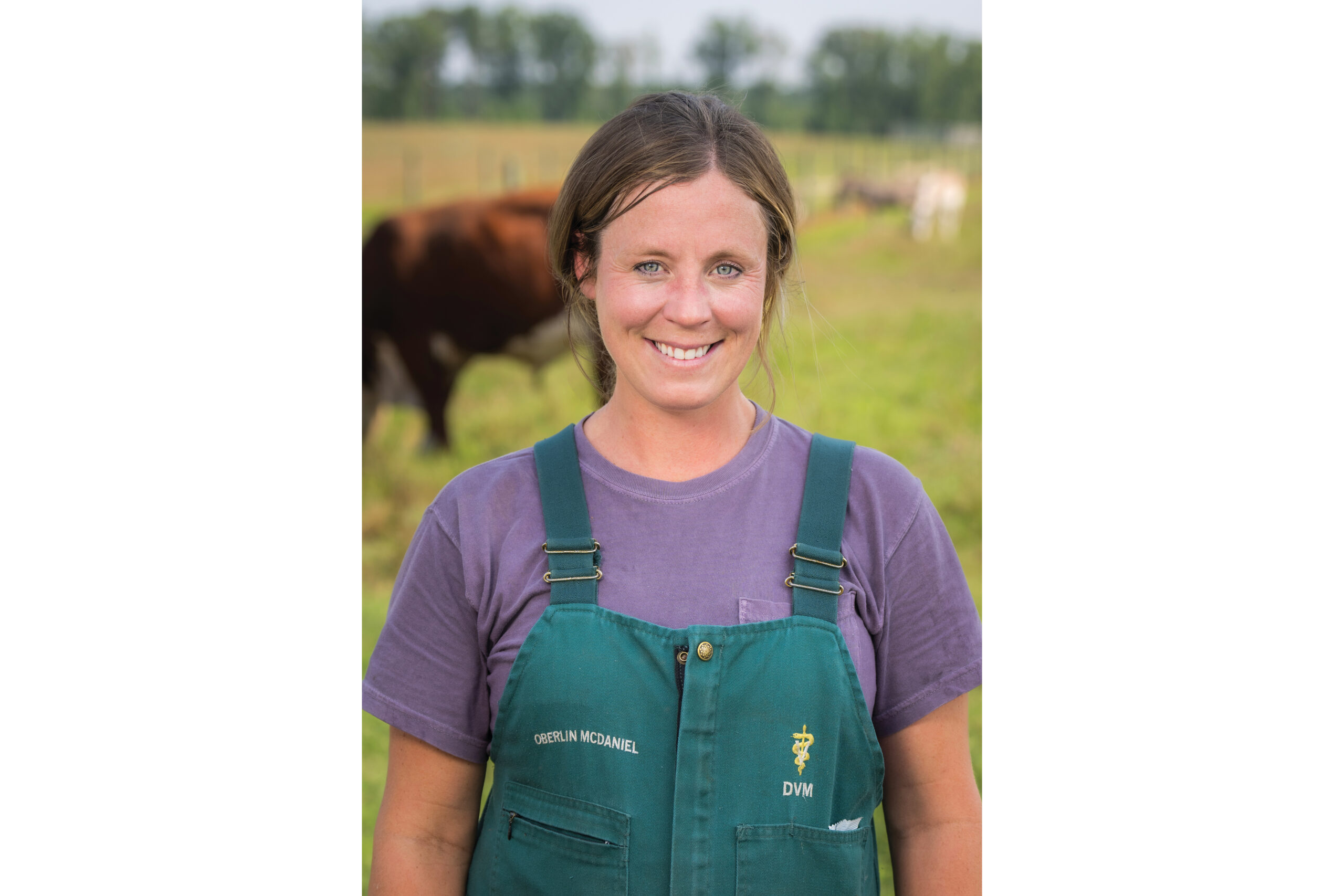
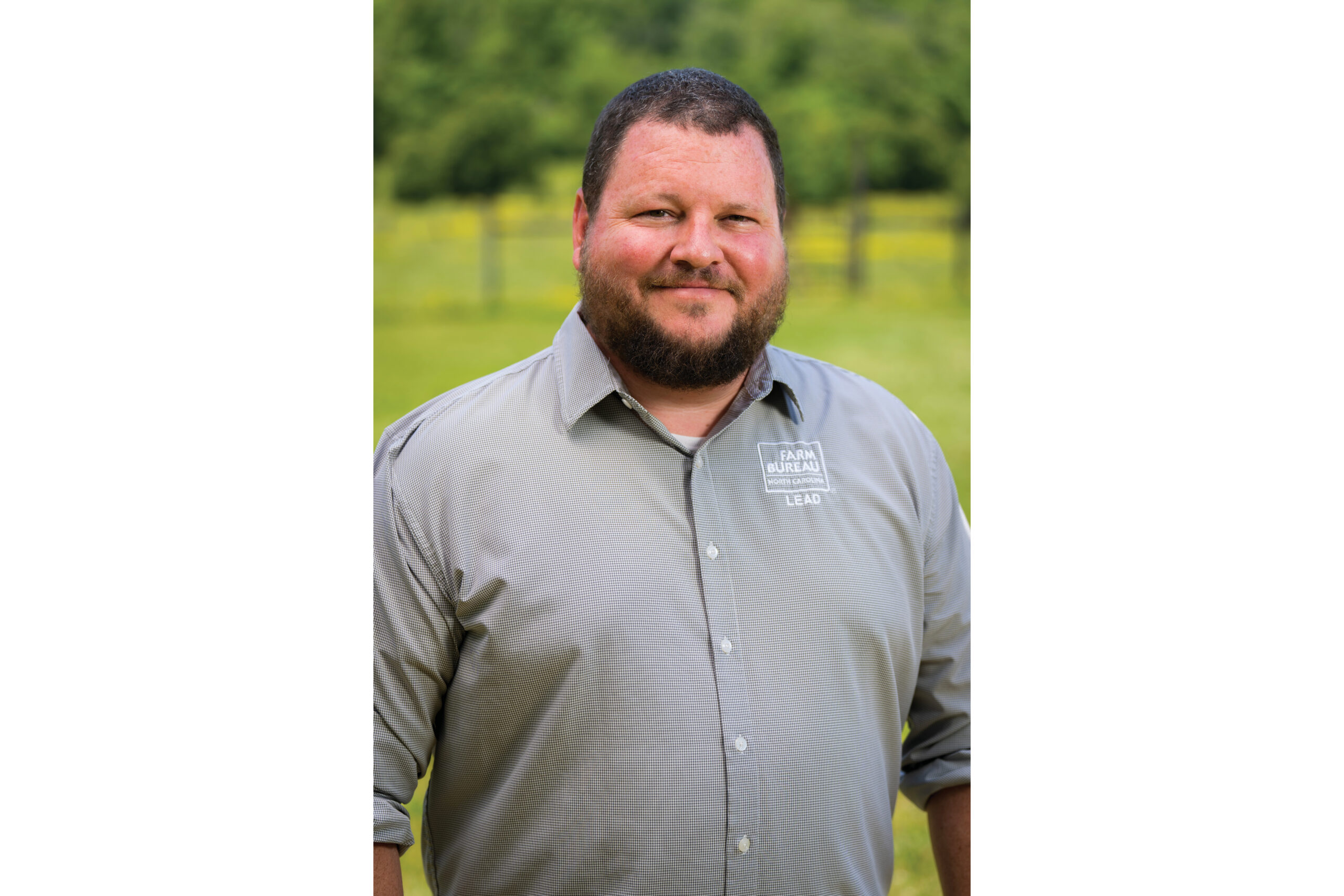
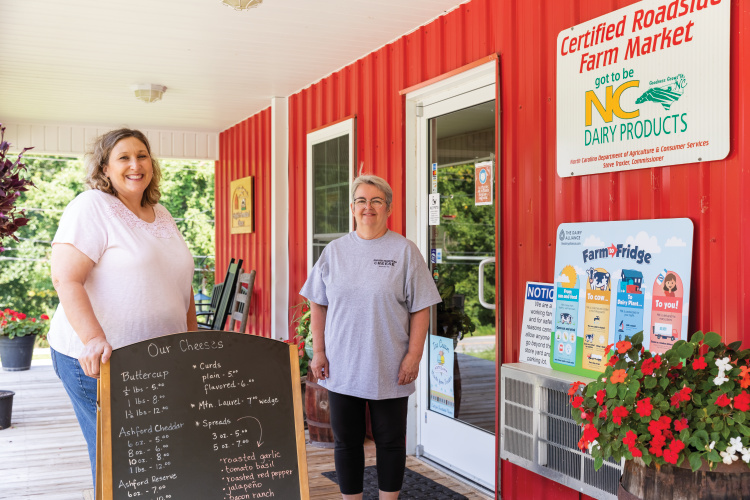

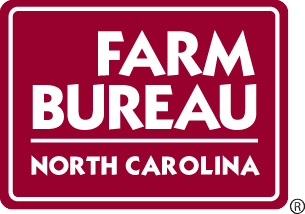
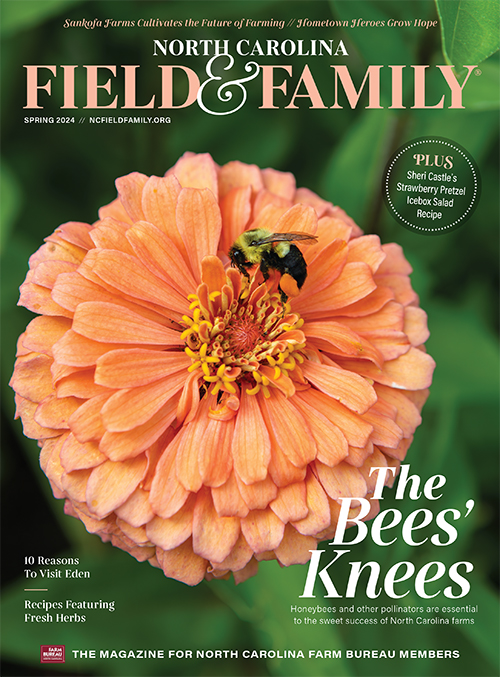 North Carolina Field and Family magazine highlights farms and foods, events and attractions, and interesting people and places throughout the state.
North Carolina Field and Family magazine highlights farms and foods, events and attractions, and interesting people and places throughout the state.
Leave a Comment